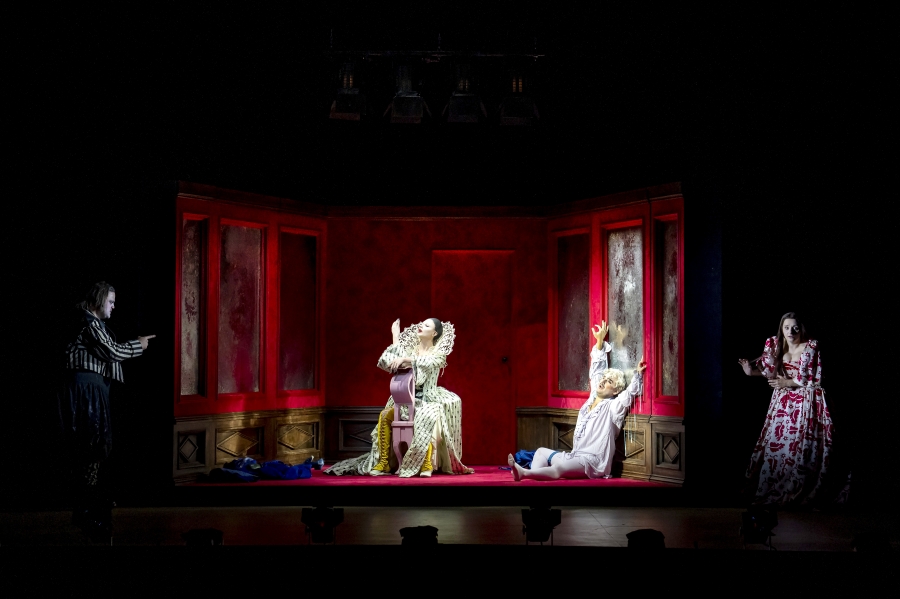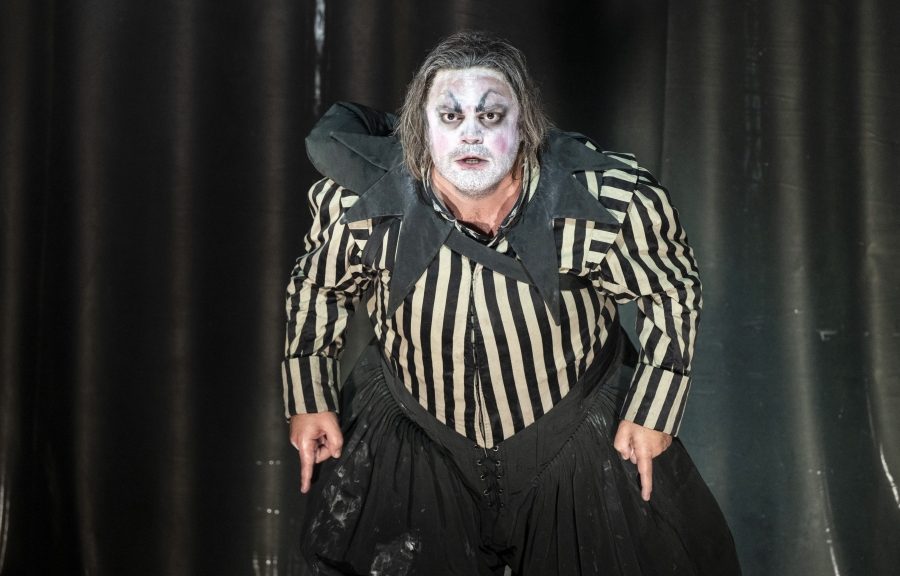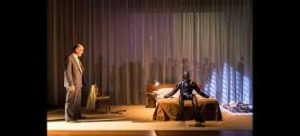 (3 / 5)
(3 / 5)
At the core of Rigoletto is the tragedy of an overprotective father, Rigoletto, who wants to kill his daughter’s suitor, the Duke, a well-known womaniser, but has his daughter killed instead. Gilda is a victim of her father’s control, of the Duke’s seduction, but also of the often misogynistic notions of love as self-sacrifice that lead her to her demise. Yet the Duke is also tragic.
Verdi moved away from Hugo’s story Le roi s’amuse, on which Rigoletto is based. The Duke is not just a womaniser with no scruples, making fun of women in La donna è mobile. He is a dissolute man but one who is seduced by Gilda’s purity and perhaps even falls really in love with her.
It’s a tragedy that is never staged. Most productions are seduced by the need of being relevant, contemporary, even topical. There are times when, thanks to fortuitous timing, the contemporary political setting works. This is the case of the WNO’s production of Rigoletto in 2019 set the opera in Washington at the height of the #metoo era. The staging, direction, orchestra and performances were superb.
This production of Rigoletto is pleasant, with good performances but tame with a subdued orchestra and no clear take. Adele Thomas’s direction has no clear and consistent interpretation of the drama. There are references to politics and the Bullingdon club but in 18th century costumes making the staging confused and confusing. The direction constraints the performers and fails to convey the contrasting elements of the seductive myschief, tragic love, and suspence of the opera.

Daniel Luis de Vicente, Alyona Abramova, Raffaele Abete and Soraya Mafi in Rigoletto. Photo Richard Hubert Smith.
Soraya Mafi, as Gilda, has a beautiful voice and performs Caro nome impeccably, yet her Gilda is a little too fragile. Raffaele Abete, as the Duke, sings well. His voice is agile but not powerful enough to carry the persona of the Duke. The direction and interpretation makes this Duke a bit of a lightweight. He’s not seductive, he’s not even a bad boy, he’s merely vain.
Daniel Luis Vicente excels as Rigoletto cutting a very tragic figure and, at times, stealing the scene, including the final quartet. Notable are also the performances of Nathanaël Tavernier as Sparafucile and of Alyona Abramova as Maddalena. Abramova performs soulfully, but being a mezzo rather than a contralto, does not provide a sufficient contrast with Mafi’s Gilda in the final quartet.
The strong performances make this production pleasant but constrained and at times, especially in the final quartet, disjointed. The orchestra, conducted by Pietro Rizzo, lacks power. The scene of the storm is disrupted by the rather ill-conceived idea of firing lights onto the audience instead of letting the music conjure the wind and thunder.
The WNO can do a lot better than this, as shown recently in Il Trittico. It can excel. Let’s hope this is a blip, perhaps the result of the cutting of funding and constant insecurity over their future. The WNO is a treasure in Wales and should be supported and allowed to grow.



 (4 / 5)
(4 / 5)
